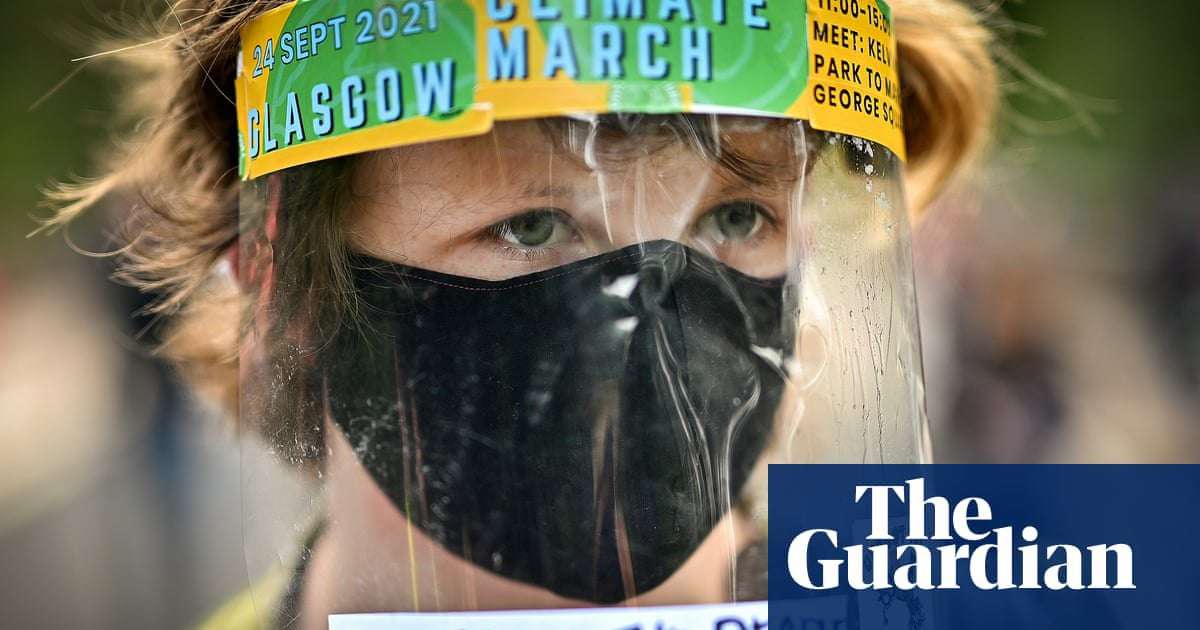The climate crisis is taking a growing toll on the mental health of children and young people, experts have warned.
Increasing levels of “eco-anxiety” – the chronic fear of environmental doom – were likely to be underestimated and damaging to many in the long term, public health experts said.
Writing in the British Medical Journal, Mala Rao and Richard Powell, of Imperial College London’s Department of Primary Care and Public Health, said eco-anxiety “risks exacerbating health and social inequalities between those more or less vulnerable to these psychological impacts”.
Although not yet considered a diagnosable condition, recognition of eco-anxiety and its complex psychological effects was increasing, they said, as was its “disproportionate” impact on children and young people.
In their article, they pointed to a 2020 survey of child psychiatrists in England showing that more than half (57%) are seeing children and young people distressed about the climate crisis and the state of the environment.
A recent international survey of climate anxiety in young people aged 16 to 25 showed that the psychological burdens of climate crisis were “profoundly affecting huge numbers of these young people around the world”, they added.
Rao and Powell called on global leaders to “recognise the challenges ahead, the need to act now, and the commitment necessary to create a path to a happier and healthier future, leaving no one behind”.
Research offered insights into how young people’s emotions were linked with their feelings of betrayal and abandonment by governments and adults, they said. Governments were seen as failing to respond adequately, leaving young people with “no future” and “humanity doomed”.
Their warning comes a week after Greta Thunberg excoriated global leaders, dismissing their promises to address the climate emergency as “blah, blah, blah”.
In April, she quoted Boris Johnson, who derisively used the phrase “bunny hugging” to describe climate activism. Thunberg said: “This is not some expensive, politically correct, green act of bunny hugging”.
By 2030 carbon emissions are expected to rise by 16%, according to the UN, rather than fall by half, which is the cut needed to keep global heating under the internationally agreed limit of 1.5C.
03:05 Protest in a pandemic: voices of young climate activists – video
Rao and Powell said it was important to consider what could be done to alleviate the rising levels of climate anxiety.
“The best chance of increasing optimism and hope in the eco-anxious young and old is to ensure they have access to the best and most reliable information on climate mitigation and adaptation,” they said. “Especially important is information on how they could connect more strongly with nature, contribute to greener choices at an individual level, and join forces with like-minded communities and groups.”
Separately, new research also published in the BMJ suggests changing unhealthy behaviour could be key to achieving net zero greenhouse gas emissions by 2050.
Theresa Marteau, of the University of Cambridge, said technological innovation alone would be insufficient.
Adopting a largely plant-based diet and taking most journeys using a combination of walking, cycling and public transport would substantially reduce greenhouse gas emissions and improve health, she said.

ROVpilot101 on October 7th, 2021 at 09:49 UTC »
The article never explicitly states that the feelings of young people are legitimate. When it says young people feel they have been abandoned by politicians it’s because they have. It mentions that we are on track for 16% increase rather than 50% decrease this year to meet a target of 1.5 degrees but doesn’t explain why that’s an important threshold which will trigger positive feedback loops or even mention that it is an apocalyptic threshold and then closes by suggesting the common propaganda that places the onus on us to make personal changes to get us to net zero by 2050 (important because it would potentially prevent us from going above 1.5 degrees), completely ignoring the facts of the latest IPCC report which it doesn’t even mention. The personal responsibility argument is a fabrication of the oil and gas corporations. 100 companies are responsible for 71% of global carbon emissions. 6 cruise ships produce the equivalent of every car in Europe. You could live a thousand lifetimes even in the imperial core and it would be a drop in the ocean of emissions. We need to hold government leaders to account to regulate the corporations that borrow against our future for their quarterly profits. As always I’m disappointed by the manufactured consent even in what seems to be progressive pieces by progressive newspapers.
ThrowRA_scentsitive on October 7th, 2021 at 06:51 UTC »
If you were being chased by a bear, no one would tell you you have a bear anxiety problem. What you have is a fucking bear problem.
Uthallan on October 7th, 2021 at 06:16 UTC »
My therapist said I was alone worrying about this. I quit. Also I hate how this article yet again leaves it up to individual choices. Feeling alone in this is killing us. Or it is me.